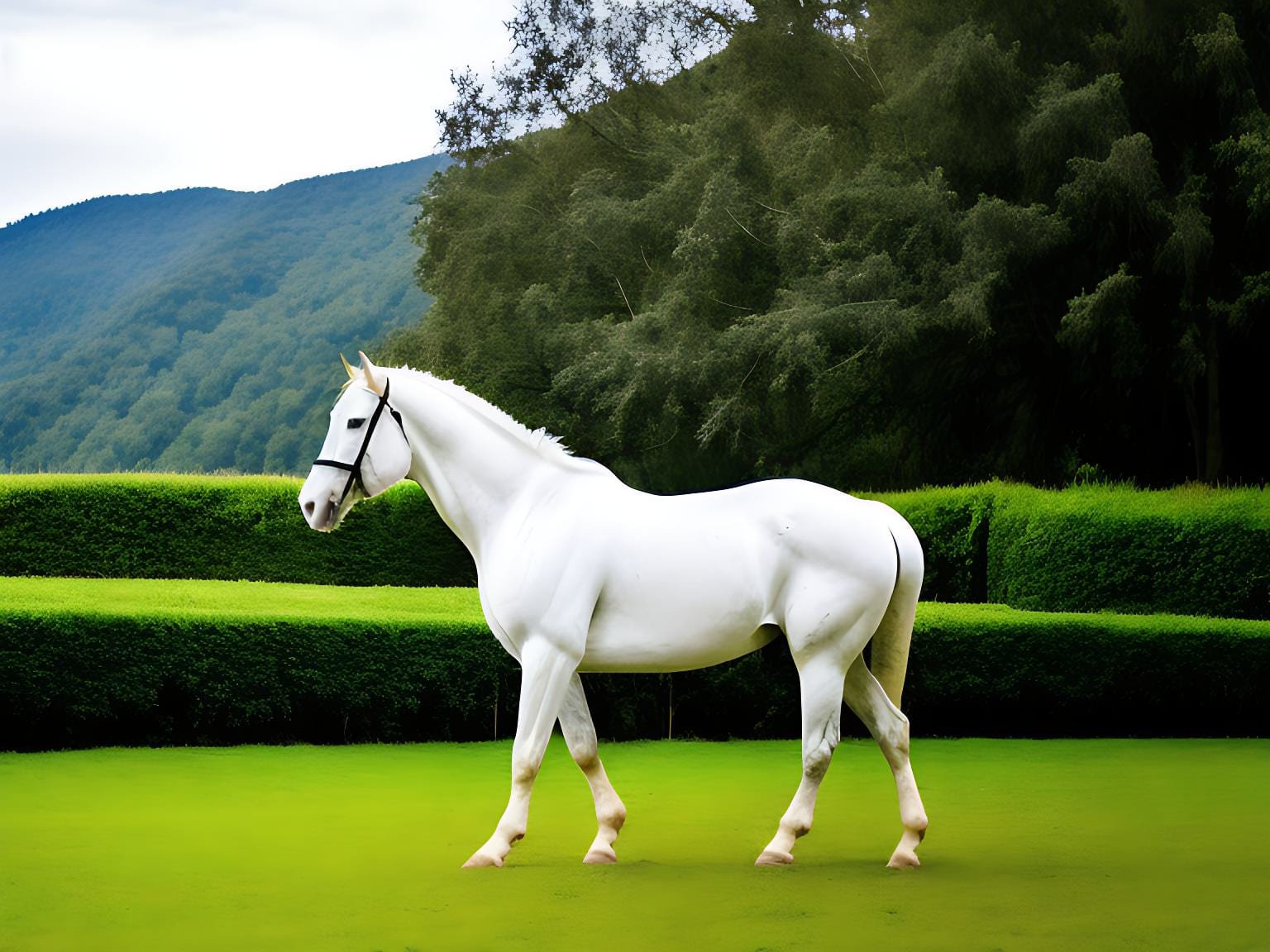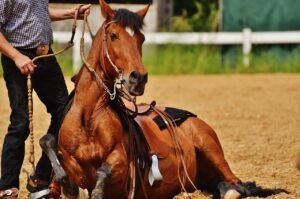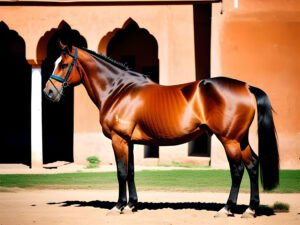Horse Price in India, USA, Uk, Germany | Everything you need to know
Horses have always been an integral part of Indian culture and heritage. They are often used for transportation, sports, and even as a status symbol. If you are interested in purchasing a horse and wants to know the Horse Price In India, it is important to understand the various factors that can affect the price.
Horse Prices
The price of horses can vary greatly depending on the country, the breed, age, gender, training, and overall health and condition of the horse. Here we discuss the prices of horses in different countries:
Horse Prices in India:
Horse prices in India vary depending on several factors, such as breed, age, gender, training, and health. Local breeds like Marwari, Kathiawari and Sindhi horses cost between Rs. 20,000 to Rs. 5,00,000, while imported breeds like Thoroughbreds and Warmbloods are more expensive, ranging from Rs. 5,00,000 to Rs. 10,050,000. Ponies can be a more affordable option, costing anywhere from Rs. 10,000 to Rs. 1,00,000, depending on breed, age, and training.

Horse Price in United States:
In the United States, prices can range from a few hundred dollars for untrained horses to several hundred thousand dollars for well-trained horses with a proven record. The average price for a horse in the United States is around $5,000 to $10,000.
Horse Price in United Kingdom:
In the United Kingdom, the price of horses can range from around £3,000 to £10,000. The price of Rare horses can range from a few thousand pounds to hundreds of thousands of pounds, with the most expensive horses being racehorses and show jumpers.
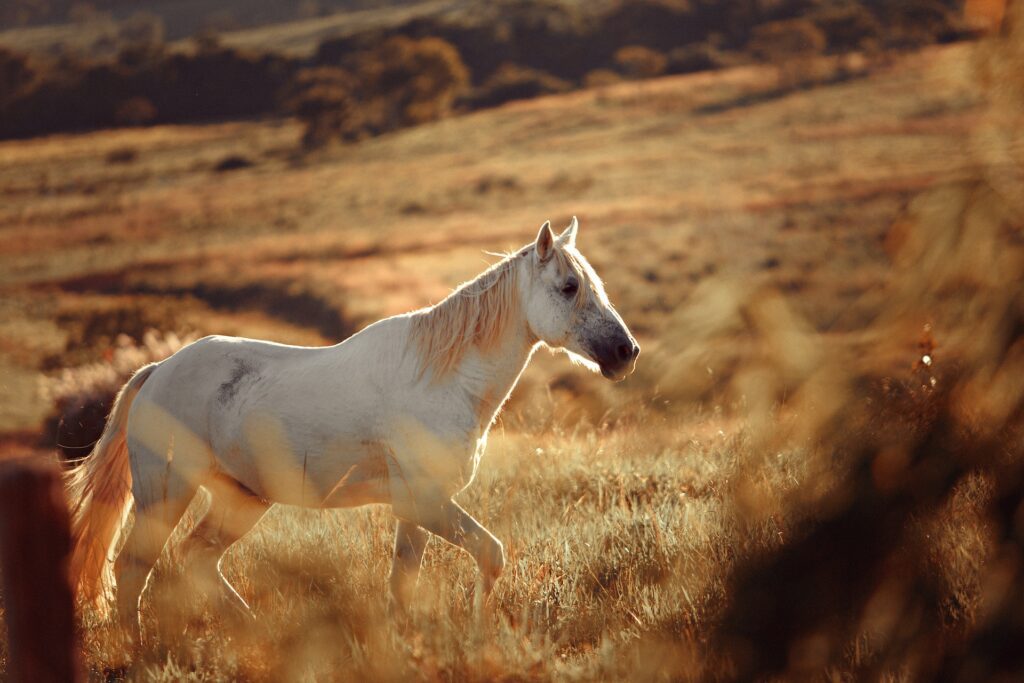
Horse Price in Australia:
In Australia, The average price for a horse in Australia is around $5,000 to $20,000. Whereas the price of a horse in Australia depends on various factors and also the this is just an initial price of a horse, there are other expenses of a horse like food, health, training, etc.
Horse Price in Canada:
The average price for a horse in Canada is around $2,000 to $8,000. This was just the average price of a horse in Canada, However, prices and expenses are increased with different breeds of horses.
Horse Price in Germany:
In Germany, prices can range from a few thousand euros for untrained horses to several hundred thousand euros for well-trained horses with a proven record. The average price for a horse in Germany is around €5,000 to €15,000.
Baby Horse Price In India
In India, the cost of a Baby Horse can change depending on its breed, lineage, and age. Typically, the price can vary from ₹50,000 to ₹2,00,000 rupees. Before making a purchase, it is essential to do your research on the breed you are considering and to make sure the horse is in good health.
Black Horse Price
Black horses are considered to be rare and majestic, which can influence their price. The price of a black horse in India can range from ₹50,000 to ₹10,00,000 depending on its breed, age, and training.

Arabian Horse Price In India
Arabian horses are known for their beauty, speed, and endurance, which can make them a popular choice among horse enthusiasts. The price of an Arabian horse in India can range from ₹1,00,000 to ₹10,00,000 depending on its age, training, and bloodline.
Marwari Horse Price In India
Marwari horses are a rare and unique breed that originates from the Marwar region of Rajasthan. Their distinctive curved ears and loyalty make them a popular choice among horse enthusiasts. The price of a Marwari horse in India can go up from ₹50,000 to ₹10,00,000 depending on its age, lineage and education.
Kathiawari Horse Price
Kathiawari horses are known for their beauty, stamina, and loyalty. They are a popular choice for horse enthusiasts and can range in price from ₹50,000 to ₹5,00,000 depending on their age, training, and bloodline.
Akhal Teke Price
Akhal Teke horses are a rare and unique breed known for their beauty, endurance, and intelligence. They are native to Turkmenistan but can be found in India as well. The price of an Akhal Teke horse in India can range from ₹5,00,000 to ₹50,00,000 depending on its age, bloodline, and training.
Pony Horse Price In India
Ponies are popular among children and are smaller than regular horses, making them a good choice for beginners or for people who don’t know much about horses. The price of a pony in India can range from ₹30,000 to ₹2,00,000 depending on its breed, age, and training.
Racing Horse Price In India
Racing horses are trained specifically for racing and can be a good investment if you are interested in horse racing. The price of a racing horse in India can range from ₹1,00,000 to ₹10,00,000.
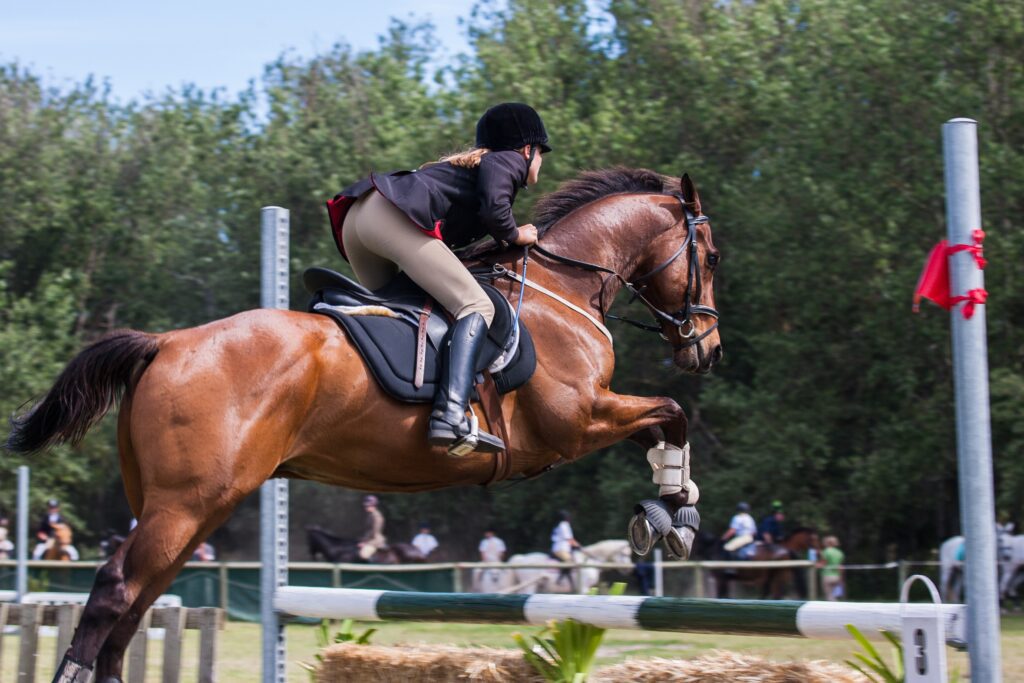
Friesian Horse Price In India
Friesian horses are a popular choice for horse enthusiasts because of their beauty and grace. They are native to the Netherlands but can be found in India as well. The price of a Friesian horse in India can range from ₹5,00,000 to ₹50,00,000.
Nukra Horse Price In Punjab
The Nukra horse breed is found mostly in the Punjab region of India and Pakistan and is a popular breed for agricultural work and transportation. The estimated price range of Nukra horses in Punjab is ₹50,000 to ₹2,00,000.
Horse Price List in Different Locations in India:
| Horse Price List India | |
|---|---|
| Different Locations | Horse Prices |
| Horse Price in Kolkata | ₹60,000 to ₹5,90,000 |
| Horse Price in Bangalore | ₹90,000 to ₹12,00,000 |
| Horse Price in Kerala | ₹75,000 to ₹8,00,000 |
| Horse Price in Delhi | ₹80,000 to ₹9,00,000 |
| Horse Price in Tamilnadu | ₹90,000 to ₹10,00,000 |
| Horse Price in Bhopal | ₹70,000 to ₹7,00,000 |
| Horse Price in Pune | ₹82,000 to ₹12,00,000 |
| Horse Price in Bhubaneswar | ₹75,000 to ₹8,50,000 |
| Horse Price in Chennai | ₹80,000 to ₹7,00,000 |
| Horse Price in Haryana | ₹90,000 to ₹9,00,000 |
| Horse Price in Jaipur | ₹70,000 to ₹5,50,000 |
| Horse Price in Lucknow | ₹80,000 to ₹6,00,000 |
| Horse Price in Mumbai | ₹60,000 to ₹5,00,000 |
| Horse Price in Punjab | ₹90,000 to ₹5,60,000 |
| Horse Prices in Hyderabad | ₹50,000 to ₹6,50,000 |
| Horse Price in Patna | ₹70,000 to ₹5,00,000 |
| Nukra Horse Price In Punjab | ₹50,000 to ₹2,00,000 |

Factors Affect Horse Price
Horse prices can vary greatly depending on several factors, including breed, age, conformation, training, health, and overall market demand:
Breed:
The breed of a horse can have a significant impact on its price. Certain breeds, such as Thoroughbreds, Arabians, and Warmbloods, are highly sought after and can command higher prices due to their reputation for athleticism and versatility.
Age:
Age is another important factor in determining the price of a horse. Generally, younger horses are more expensive than older horses. This is because they have more years of potential use and training ahead of them.
Conformation:
Conformation refers to the physical structure and build of a horse. Horses with ideal conformation, such as a straight and strong back, well-set neck, and strong limbs, are typically more valuable than horses with conformational faults, such as crooked legs or a weak back.

Training:
A horse’s level of training is also a crucial factor in determining its price. Horses that have undergone extensive training in a specific discipline, such as dressage or jumping, are typically more valuable than untrained horses.
Health:
At last, overall market demand plays a significant role in determining horse price. When demand for a particular breed, age, or discipline is high, prices tend to increase. Conversely, when demand is low, prices may decrease.
The true cost of owning a Horse
The true cost of owning a horse can vary greatly depending on factors such as location, level of competition, and the horse’s health and age. It’s essential to factor in these ongoing expenses and budget accordingly to ensure you can provide your horse with the care it needs.
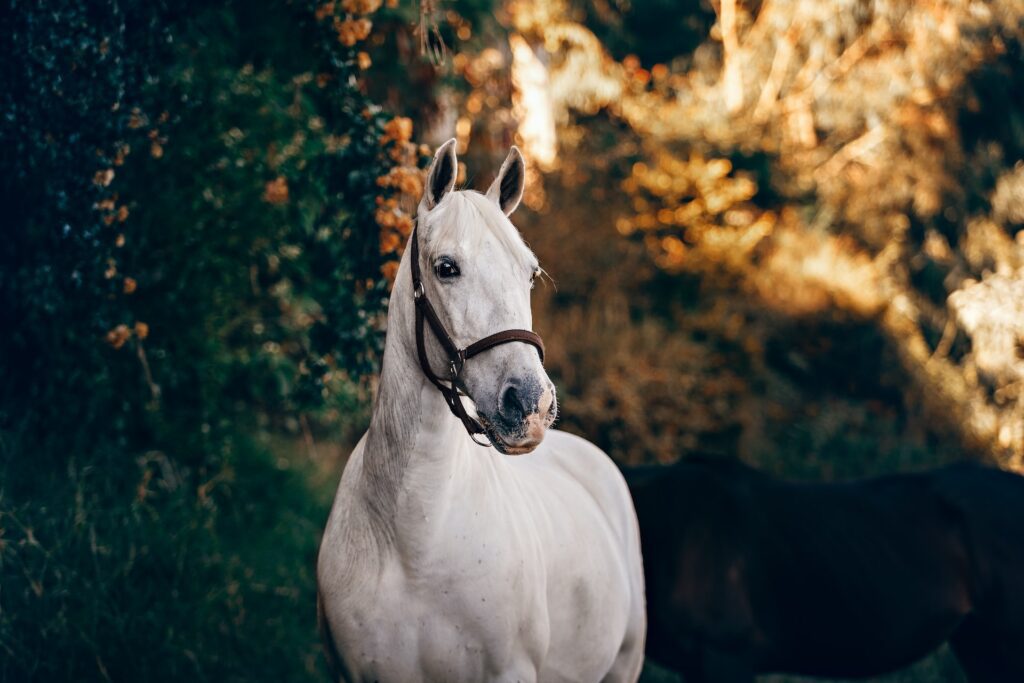
About Horse
Horses are majestic and intelligent animals that have played an integral role in human history for thousands of years. Domesticated horses are typically used for various purposes, including transportation, work, sports, and recreation. There are several breeds of horses, each with their own unique characteristics and abilities. Understanding the care, training, and factors that affect horse prices can help you make an informed decision when buying or selling a horse.
Real White Horse
A white horse is a horse whose coat color is predominantly white. Although not a specific breed, many breeds can have white horses, including American Quarter Horses, Thoroughbreds, and Arabians. White horses can be particularly striking in appearance and have featured in mythology and art throughout history.
Brown Horse
Brown horses, also known as bay horses, are a common coat colour among horses. The colour can range from a light, reddish-brown to a dark, almost black colour. Brown horses can be found in many different breeds and are often used for a variety of purposes, including riding, driving, and working.
White Marwari Horse
The Marwari horse is a rare and prized breed that is highly valued for its beauty, grace, and intelligence. The breed is native to the Marwar region of Rajasthan in India, and its most distinctive feature is its curled ears.
Bhimthadi Horse
The Bhimthadi horse is a rare and ancient breed that is native to Maharashtra, India. The breed is known for its strength and endurance, and it was traditionally used for work in agriculture and transportation.
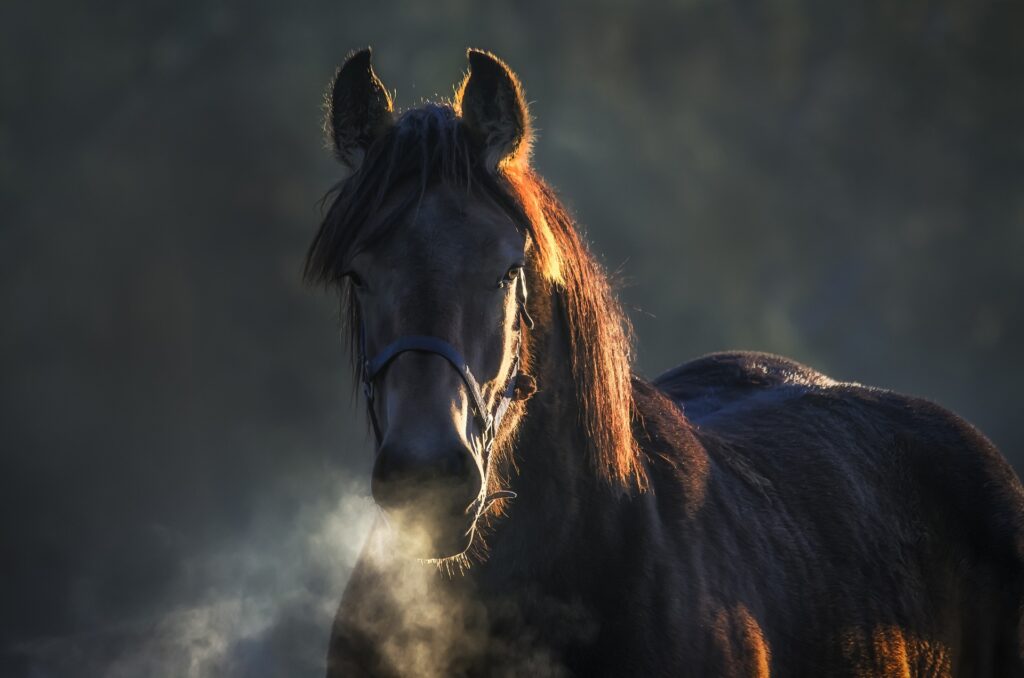
5 Most Expensive Horse in the World
Top 5 most expensive horses in the world:
| Horse Name | Breed | Price (in USD) | Owner |
|---|---|---|---|
| Fusaichi Pegasus | Thoroughbred | 70 million | Coolmore Stud |
| Shareef Dancer | Thoroughbred | 40 million | Sheikh Mohammed |
| Totilas | Dutch Warmblood | 21 million | Paul Schockemöhle |
| Green Monkey | Thoroughbred | 16 million | Demi O’Byrne |
| Palloubet d’Halong | Selle Francais | 15 million | Jan Tops |

5 Best Horse Breeds in India
5 Best Horse Breeds in India are:
- Marwari: known for distinctive curled ears, beauty, grace, and intelligence.
- Kathiawari: versatile, strong, and enduring, often used for agriculture and transportation.
- Manipuri Pony: small, agile, fast, and stamina, often used for sports and recreation.
- Spiti Horse: rare and ancient, highly valued for strength and ability to navigate difficult terrain.
- Zanskari Horse: hardy and rugged, highly adapted to high-altitude regions of Ladakh, known for stamina and endurance.
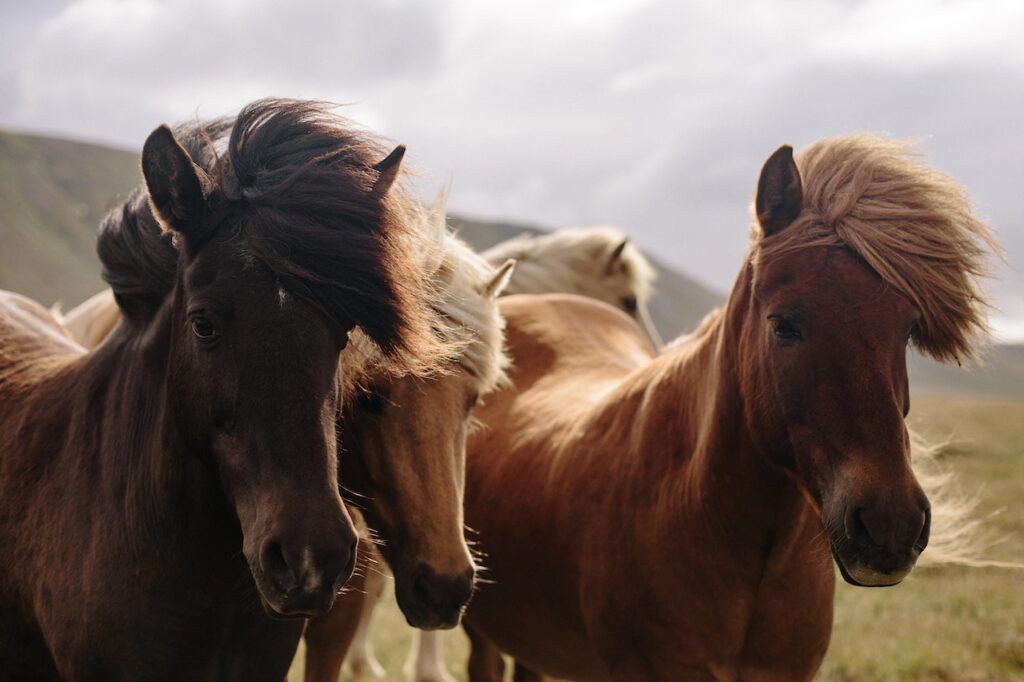
History of Horses
Horses have a rich history dating back to prehistoric times, with the first ancestor of the modern horse appearing around 55 million years ago. They played an important role in human civilization, originally used for hunting and transportation, and later for agriculture and warfare. The taming of horses caused the birth of commercial networks and the growth of civilizations.
Types of Horses
There are many different breeds and types of horses, each with its own unique characteristics and abilities:
| Type of Horse | Characteristics |
|---|---|
| Thoroughbred | Known for speed and agility, often used for racing and show jumping |
| Quarter Horse | Strong and sturdy, used for rodeo events, ranch work, and trail riding |
| Arabian | Elegant and intelligent, known for endurance and used for long-distance riding |
| Appaloosa | Distinctive spotted coat and muscular build, often used for trail riding and ranch work |
| Warmblood | Bred for sports such as dressage, show jumping, and eventing, known for their athleticism and calm temperament |
| Draft Horse | Large and powerful, used for work such as plowing fields and pulling heavy loads |
| Pony | Small and often hardy, used for children’s riding, driving, and sports such as polo |
| Miniature Horse | Even smaller than ponies, often kept as pets or used in therapeutic riding programs |

10 Facts about Horse
Here are some interesting facts about horses:
- Horses can sleep both standing and lying down, and they only need about 2-3 hours a day.
- A horse’s teeth never stop growing, so you have to constantly chew so they don’t get too long.
- Horses have a unique digestive system that allows them to digest heavy plant materials such as hay and grass.
- Horses can run up to 55 mph.
- The average lifespan of a horse is approximately 25-30 years, but some horses have lived up to 40 years.
- Horses are very social animals and usually form close bonds with other horses, often staying together in groups for years.
- The tallest horse of all time was a Shire horse named Sampson, who was 7 feet 2 inches tall.
- Horses have an excellent memory and remember people and places for years.
- Horses have a natural flight response, which means they are often startled by sudden movements or loud noises.
- Horses are used for many different purposes, including transportation, work, sport, therapy and entertainment.
8 Care Tips for Horses
Horse care is essential for maintaining the health and well-being of horses. Here we discussed the main care tips for horses:
- Clean water: Provide fresh, clean water daily.
- Balanced diet: Feed hay, grass, and grain according to age, weight, and activity level.
- Clean living environment: Keep stalls and pastures clean.
- Regular exercise: Riding, lunging, or pasture turnout.
- Grooming: Brushing, mane and tail care, and hoof picking.
- Regular veterinary care: Vaccinations, deworming, and dental care.
- Shelter: Provide protection from the elements.
- Social interaction: Turnout with other horses or regular training sessions.
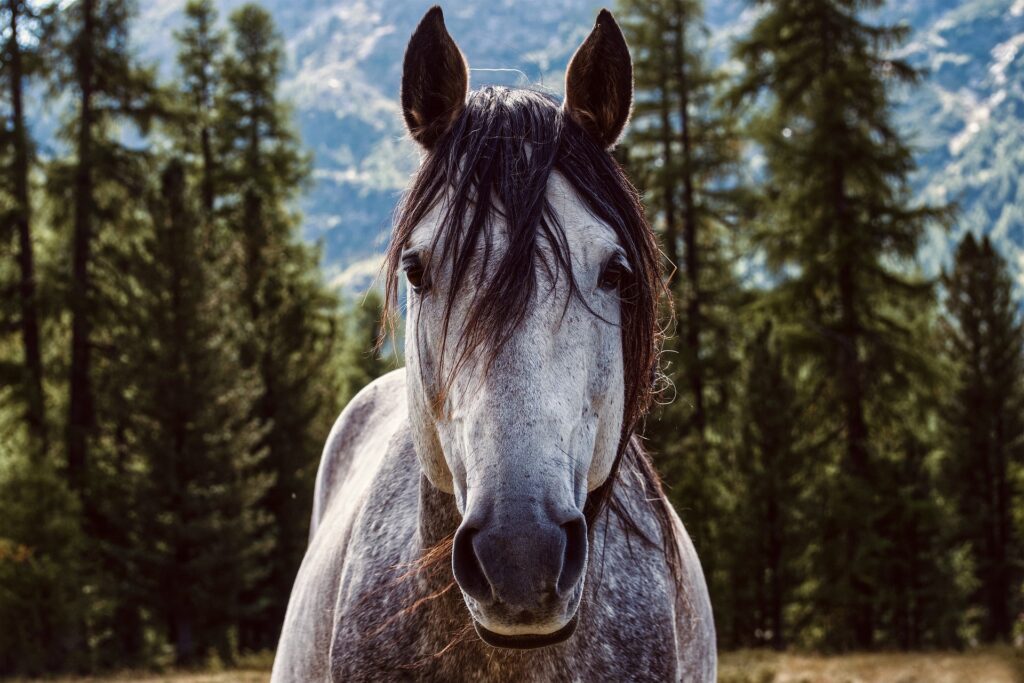
7 Health Issues of Horses
Here we discussed 7 most common health problems that horses can experience, check if your horse faces the same:
- Colic: Colic is a common digestive disorder in horses and can be caused by a number of factors including diet, stress and dehydration.
- Lameness: Lameness is often caused by an injury or strain on the horse’s legs. The horse’s hooves or joints can also be the cause.
- Respiratory Problems: Horses can develop respiratory problems such as asthma and allergies caused by dust, mould and pollen.
- Dental problems: Horses need regular dental care to prevent problems such as tooth decay, gum disease and improper chewing.
- Parasites: Parasites such as worms can cause a variety of health problems in horses, including weight loss, diarrhea and colic.
- Skin problems: Horses can have various skin problems such as infections, allergies and parasites.
- Eye problems: Horses can develop eye infections, injuries and cataracts, which can cause vision problems.
Lifespan of Horse
The average lifespan of a horse is about 25 – 30 years, although some horses can live longer. Factors such as breed, diet and general health and care can affect a horse’s lifespan. Proper nutrition, regular veterinary care and adequate exercise can help horses live longer and healthier lives.

Food for Horses
Horses need a balanced diet of hay, grass, and grain. The amount and type of food they need depend on factors such as age, weight, and activity level. They also need access to clean, fresh water at all times.
45 Names for Horses
We discussed some popular 45 names for horses must check them out and pick the one for your horse:
| Masculine Names | Feminine Names | For Both Names |
|---|---|---|
| Apollo | Athena | Blaze |
| Atlas | Bella | Dakota |
| Bandit | Bonnie | Dusty |
| Blackjack | Diamond | Harley |
| Boomer | Ginger | Indy |
| Buck | Hera | Jasper |
| Cash | Jasmine | Kodiak |
| Chief | Lady | Lucky |
| Dallas | Luna | Maverick |
| Duke | Misty | Phoenix |
| Hunter | Pepper | Rio |
| Justice | Ruby | Stormy |
| King | Savannah | Sunny |
| Legend | Spirit | Tango |
| Max | Star | Zeus |
Horses Care and Details of Horse Video
Video of Horse to let you understand Horse care tips, food, lifespan, and other factors. Video Credit: Erin Williams
Related Topics:
Conclusion:
A horse purchase is a significant choice that needs to be carefully thought out. The costs of ownership, such as those for food, shelter, and veterinary care, as well as the time needed for proper upkeep and training, must be considered as well. Moreover, potential horse owners should be comfortable working with horses, or be prepared to work with a trained professional.

Frequently Asked Questions on Horses:
-
How Long Do Horses Live?
Horses can live up to 25 to 30 years on average, but some horses have been known to live up to 40 years with proper care and nutrition.
-
How Much Horsepower Does A Horse Have?
A horse typically has a horsepower of about 0.7 to 1.5 horsepower. However, it’s worth noting that horsepower is a measurement of power output and not a direct comparison to a horse’s actual strength.
-
Do Horses Sleep Standing Up?
Yes, horses are capable of sleeping standing up. They have a special locking mechanism in their legs that allows them to remain upright while they rest.
-
How Much Does a Horse Cost?
The cost of a horse in India can range from around Rs. 50,000 to Rs. 6,00,000 rupees
-
How Fast Can A Horse Run?
Horses can run at speeds of up to 55 miles per hour, although most horses typically run at speeds between 25 and 30 miles per hour.
-
How Much Does A Horse Weigh?
The weight of a horse can vary greatly depending on the breed and age. In general, horses can weigh anywhere from a few hundred pounds to over 2,000 pounds (950kg).
-
Where Do Horses Live?
Horses are found all over the world in different habitats, depending on the breed. Wild horses can be found in a variety of habitats such as grasslands, deserts, and forests. Domesticated horses are typically kept in stables or pastures.
-
Do Horses Sit?
Horses are not able to sit in the way that humans do, as their anatomy is not designed for it. However, they can lie down to rest, and some horses are trained to perform certain movements that might resemble sitting.
-
What Do Horses Eat?
Horses are herbivores and typically eat grass and hay. They may also be fed grains, such as oats and barley, as well as fruits and vegetables as treats. It’s important to ensure that horses have a balanced and nutritious diet to maintain their health.
-
What Is A Baby Horse Called?
A baby horse is called a “Foal”.
-
What Is A Female Horse Called?
A female horse is called a “Mare”.
-
How Do Horses Sleep?
Horses can sleep standing up, using a special locking mechanism in their legs to remain upright. They can also lie down to sleep, but typically only for short periods of time.
-
Is a Horse Domestic Animal?
Yes, horses have been domesticated for thousands of years and are considered domestic animals.
-
What Is The Sound Of Horse?
Horses make different sounds, such as neighing, whinnying, snorting, and nickering. These sounds are used for communication with other horses and with humans.
-
How many exercises Do Horses Need?
Horses need regular exercise to maintain physical and mental health. Depending on his age and fitness level, he should exercise at least 30 minutes a day to an hour. However, the type and intensity of exercise depend on the horse’s breed, age and activity level.
-
What Are Common Horse Breeds?
There are many breeds of horses, each with unique characteristics and uses. Some common horse breeds include Arabian, Thoroughbred, Quarter Horse, Paint, Appaloosa, and Clydesdale.
-
How To Train A Horse?
Horse training is about building rapport with the animal through positive reinforcement techniques.This process involves learning the horse’s basic commands such as stopping, walking, turning and retreating. . It is important to be patient, consistent and calm during the training process.
-
How To Take Care Of A Horse?
Horse care includes food, water, shelter and regular veterinary care. Horses also need regular grooming, exercise, and social interaction with other horses.
-
How To Feed A Horse?
Horses need a diet that consists of hay or pasture grass, along with a balanced mix of grains and supplements. The amount and type of food required to depend on the horse’s age, size, and level of activity.
-
What Are The Benefits Of Horseback Riding?
Horseback riding offers several physical and mental benefits, including improved balance, coordination and strength. It also conveys a sense of freedom, relaxation and connection with nature.
-
How To Choose The Right Horse For You?
When choosing a horse, it’s important to consider your riding experience, goals and lifestyle. Factors such as race, age, temperament, and health should also be considered.
-
What is the Difference Between a Mare and a Stallion?
A mare is a female horse, while a stallion is a male horse that has not been castrated. Stallions are typically used for breeding purposes, while mares are often used for riding or racing.
-
How To Groom a Horse?
Grooming a horse involves brushing, combing, and cleaning their coat, mane, and tail. It also includes cleaning their hooves, eyes, and ears.
-
How To Transport A Horse?
Transporting a horse involves ensuring safety and comfort during the journey. It is important to use an appropriate vehicle, ensure adequate ventilation and secure the horse with appropriate equipment.

























